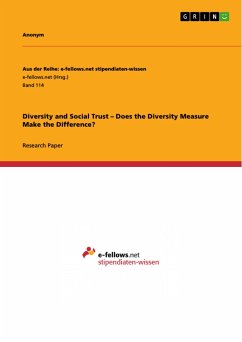Seminar paper from the year 2021 in the subject Cultural Studies - Miscellaneous, grade: 1,3, , course: Data Science, language: English, abstract: The aim of this case study is to build a cultural guideline for the managers in a medium-sized mechanical engineering business in south Germany working in Brazil. The guideline is based on Hofstede¿s, Hall¿s, and Rotter¿s concept to evaluate cultural differences between Germany and Brazil. Globalization is used to describe the interdependence of the world¿s economies and cultures. These global interactions did reach its peak in the 19th century through technical breakthroughs such as steamships, railroads leading to an increase in human interactions throughout borders. Globalization did encourage the aspect of comparative advantage, meaning that each country can specify on products which require the least amount of resources. Trading these resources makes the production more efficiently, lowers the prize of goods and is daily practiced. Modern global economy makes intercultural cooperation indispensable for companies. International businesses face difficulties coming from a lack of intercultural understanding. Without the briefing on the cultural differences, misunderstandings and conflicts can occur easily. To keep up with the rising demand of intercultural interactions, it is mandatory to understand different cultures, values and their impact on the organizational operations within them. One of the most important tasks of a manager is to do the same task all over the world, but change how they do it. The strategy, structure, and actions suitable for the cultural background must change regarding the different cultural environment the manager is working at. In order to achieve organizational goals it is inevitable to adapt these aspects based on the socio-cultural environment. This goal can be achieved by cross-cultural management. Many studies have been obtained to answer conflicts arising from cross-cultural interactions. One aspect of addressing the roots of the cross-cultural conflicts is described by the dimensional approach by introducing multiple dimensions. Rotter defines national culture according to their locus of control (LoC) and uses a one dimensional model. Another approach to address cultural differences defined by Edward T. Hall does include the aspect of communication. The main focus here is on the verbal, as well as non-verbal communication and build on a three dimensional model. Hofstede explained the national culture according to a six dimensional model.
Hinweis: Dieser Artikel kann nur an eine deutsche Lieferadresse ausgeliefert werden.
Hinweis: Dieser Artikel kann nur an eine deutsche Lieferadresse ausgeliefert werden.








